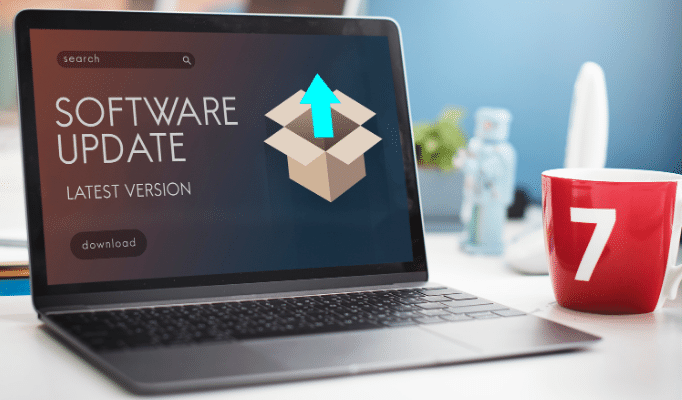The Importance of Regular Software Updates in Cybersecurity

The Importance of Regular Software Updates in Cybersecurity
Regular Software Updates in Cybersecurity
The Introduction to Cybersecurity and Software Updates is essential for your basic understanding of how to protect your online resources against online threats such as phishing, malware, and various other malicious software/ tools.
If you want to get a better overview of the “Importance of Regular Software Updates in Cybersecurity,” this is the article for you. What are we waiting for? Let’s get straight into the topic!
Why Software Updates Matter?
- Patching Vulnerabilities
Software updates are important because they fix known security flaws, which lowers the possibility of cyberattacks and data breaches. Ignoring updates puts your systems at risk of being used maliciously, jeopardizing the security of your data and business operations.
- Improved Features
Updates to the software are necessary to add new features, improvements, and functionality. They assist your software in remaining competitive and adjusting to shifting user demands and market trends. Failure to update results in diminished user experiences and performance, thereby impeding innovation and productivity.
- Compatibility and Stability
The latest hardware and software environments are compatible thanks to software updates. They improve system stability and deal with compatibility problems. Updates can cause compatibility issues, crashes, and performance issues, which can affect the overall dependability of your IT infrastructure.
Risks of Neglecting Software Updates
- Data Breaches and Financial Impact
By exposing your systems to known vulnerabilities that cybercriminals might exploit, ignoring software upgrades increases the risk of data breaches. Financial losses from regulatory fines, legal settlements, costs of recovery, and loss of customer trust can be brought on by such violations.
- Legal Repercussions
Particularly in sectors with stringent data protection laws, failing to update software can have legal ramifications. If updates are neglected and these rules are broken, your organization could face fines, penalties, and other legal repercussions.
- Reputational Damage
Software updates that are neglected might result in security breaches and system outages that damage your company’s reputation. Damage to your reputation may have an adverse effect on your long-term company prospects and competitiveness by eroding customer confidence and badly influencing relationships with stakeholders.

Best Practices for Regular Updates
- Scheduling and Automation
A consistent update plan should be established, whether it be daily, weekly, or monthly, and automation should be used whenever possible to ensure timely changes. By doing this, you reduce the chance of missing important fixes and maintain the security of your software and systems without the need for ongoing manual intervention.
- Backup Before Updating
Always make backups of your data and system settings before implementing upgrades since unforeseen problems or incompatibilities might occasionally occur. By enabling you to roll back your system to a previous state in the event that an upgrade has issues, these backups act as a safety net, reducing the risk of data loss and downtime.
- Staying Informed
By subscribing to pertinent security advisories and release notes, you may keep yourself or your company up to date on software changes. This information enables you to prioritize and plan accordingly to maintain the security and performance of your software and systems. It also helps you comprehend the significance and potential effects of upgrades.
Real-World Examples of Neglected Updates Leading to Breaches
Here are some actual instances of data breaches in India caused by missed upgrades and security flaws:
| S.No. | Incidents | What? |
| 1. | Wipro Data Breach (2019) | In a breach, hackers used a phishing effort to access employee accounts at Indian IT services firm Wipro.
Security flaws and a delay in implementing appropriate software and system updates contributed to this attack. |
| 2. | Zomato Data Breach (2017) | Millions of customers’ personal information was exposed due to a data breach at the popular meal delivery and restaurant discovery platform Zomato.
The security hole was linked to a legacy system that had not been promptly patched. |
| 3. | Reliance Jio Data Breach (2017) | Sensitive consumer data was compromised by Reliance Jio, one of India’s leading cellular companies.
An unsafe database that was not regularly updated and maintained was to blame for the breach. |
| 4. | Bank of India Data Breach (2017) | Financial information about clients was exposed due to a data breach, according to the Bank of India.
Attackers made use of obsolete software that had not received security updates and flaws in the bank’s ATM switches. |
| 5. | Aadhaar Data Leaks (Multiple Incidents) | Due to security flaws, the Aadhaar program, India’s national biometric identity system, has seen numerous incidences of data leaks.
These accidents frequently happen as a result of ecosystem gaps, out-of-date software, and lax security procedures. |
The Future of Software Updates and Cybersecurity
Several significant trends are anticipated to influence software updates and cybersecurity in India in the future:
- Increased Awareness and Investment: Increased investments in security measures will result from a growing awareness among Indian organizations and citizens of the significance of cybersecurity as cyber threats continue to advance.
- Regulatory Initiatives: The Indian government is anticipated to establish and improve cybersecurity standards and laws, which will give regular software updates and security compliance more importance.
- Advanced Technologies: It will be much easier to handle software upgrades and improve cybersecurity policies if emerging technologies like AI, machine learning, and automation are adopted.
- Public-Private Collaboration: Public-private collaborations will increase in frequency, making it possible to share information and work together to enhance India’s overall cybersecurity readiness. This will guarantee that software updates continue to be a key aspect of defense against cyber threats.
Conclusion
If you want to learn how regular software updates in cybersecurity are essential, you can get in contact with Craw Security which is offering the 1 Year Diploma Course in Cyber Security Training in Delhi which is a specially designed training and certification program.
It will deliver a deep understanding of cybersecurity techniques and the knowledge of using cybersecurity tools to protect your networks, systems, servers, and databases against online threats. Moreover, you will get support from professionals in cyber security working in the IT Sector for a long time. What are you waiting for? Contact, Now!
Frequently Asked Questions
About The Importance of Regular Software Updates in Cybersecurity
1. Why are software updates crucial for cybersecurity?
Software updates are crucial for cybersecurity for several reasons:
- Patch Vulnerabilities,
- Stay Ahead of Exploits,
- Protect Sensitive Data,
- Improved Security Features, and
- Compliance Requirements.
2. What risks arise from neglecting software updates?
Neglecting software updates can lead to several significant risks and consequences:
- Security Vulnerabilities,
- Data Breaches,
- Malware Infections,
- Performance Issues,
- Legal and Regulatory Consequences,
- Costly Remediation,
- Loss of Trust, and
- Wasted Resources.
3. How can I ensure regular software updates?
For your systems to remain secure and functional, you must ensure frequent software updates. Here are five steps to help you establish a consistent update process:
- Enable Automatic Updates,
- Schedule Update Checks,
- Prioritize Critical Updates,
- Centralized Patch Management, and
- User Education and Training.
4. Are all software updates related to security?
No, software updates can also contain performance upgrades, feature upgrades, bug patches, and security-related fixes.
5. Can I revert a software update if it causes issues?
You can frequently roll back a software update, but it depends on the particular program and whether earlier versions or system backups are accessible.
















